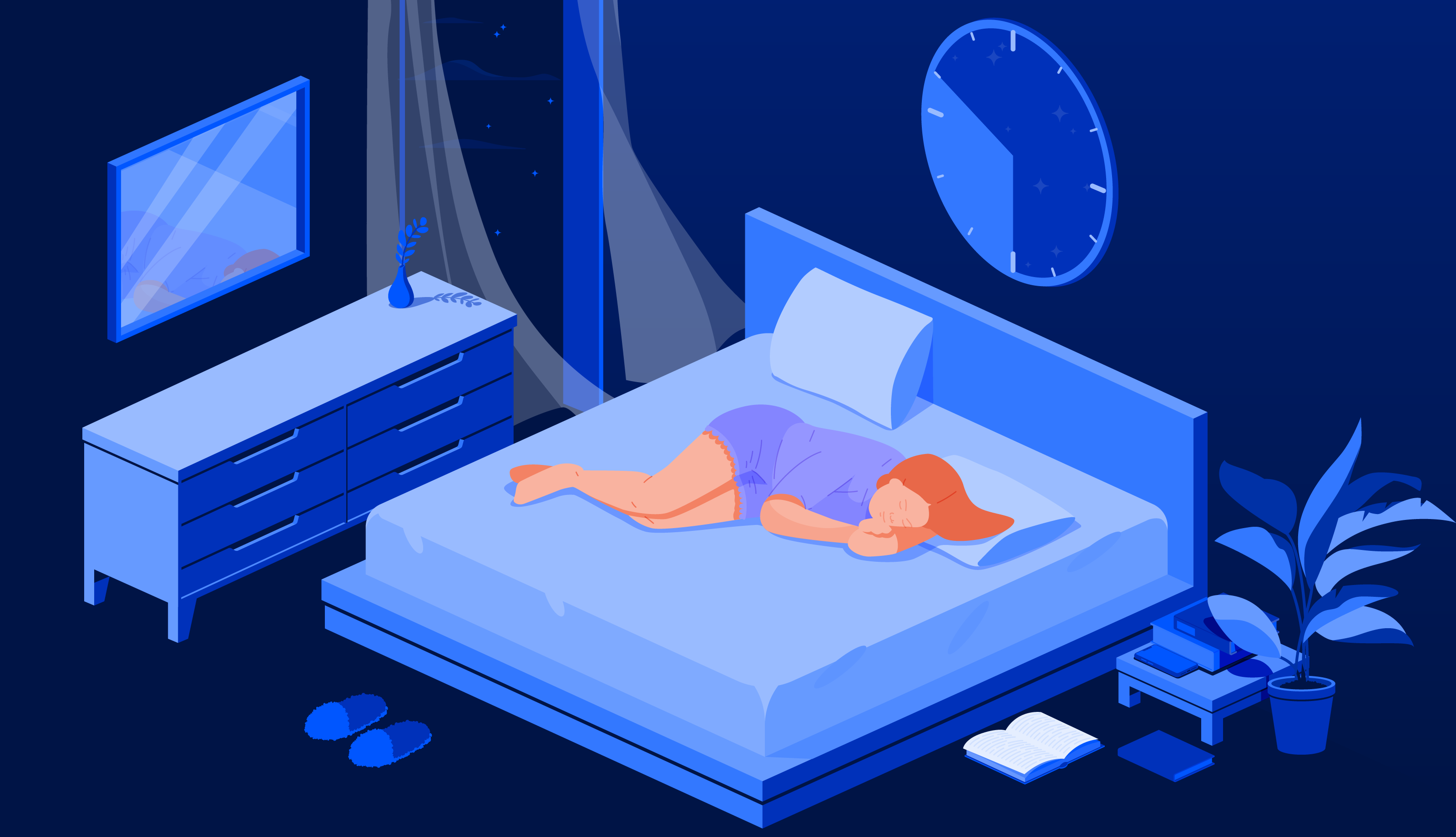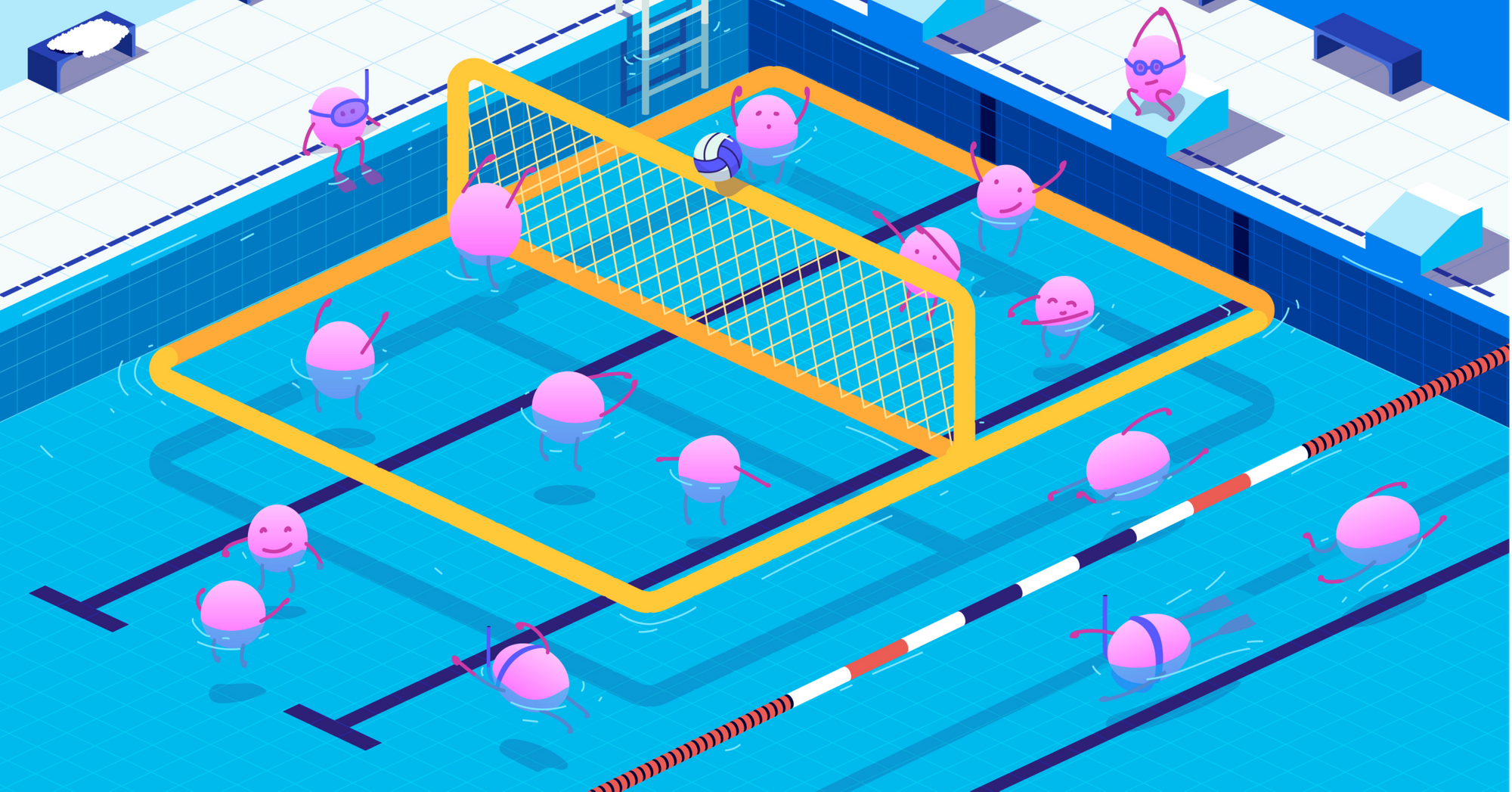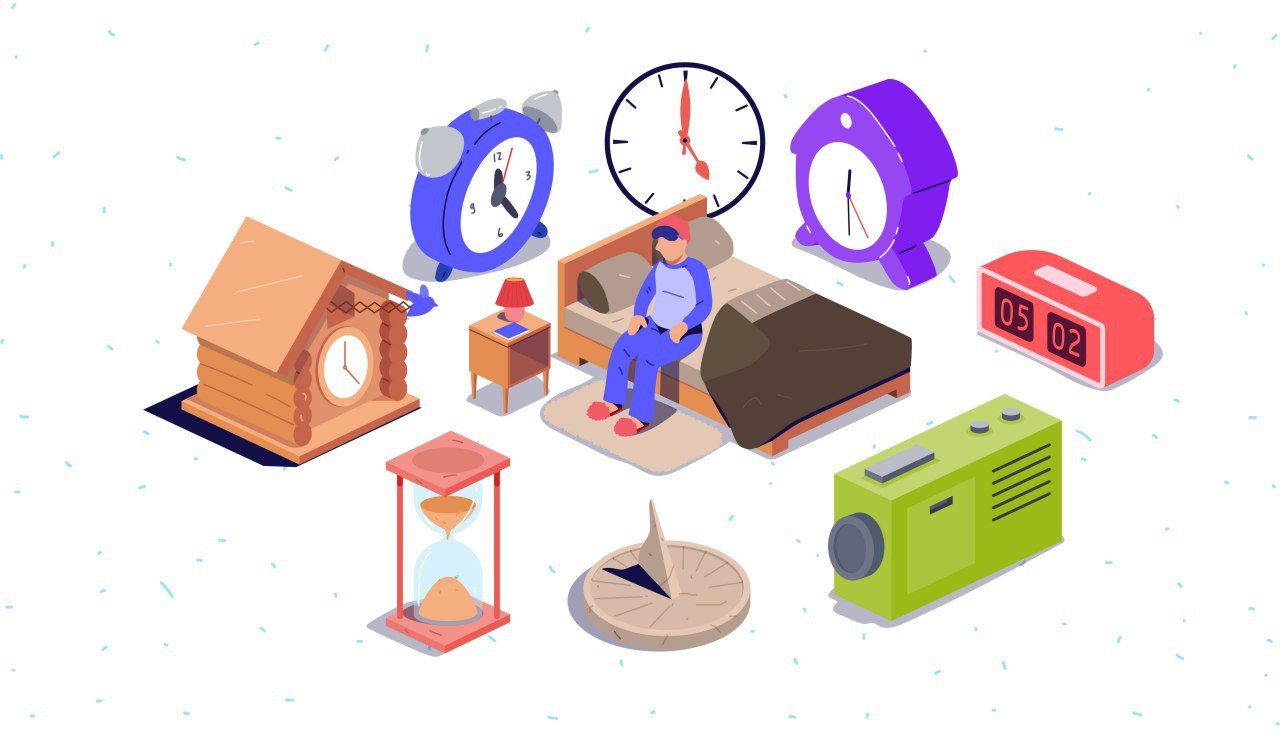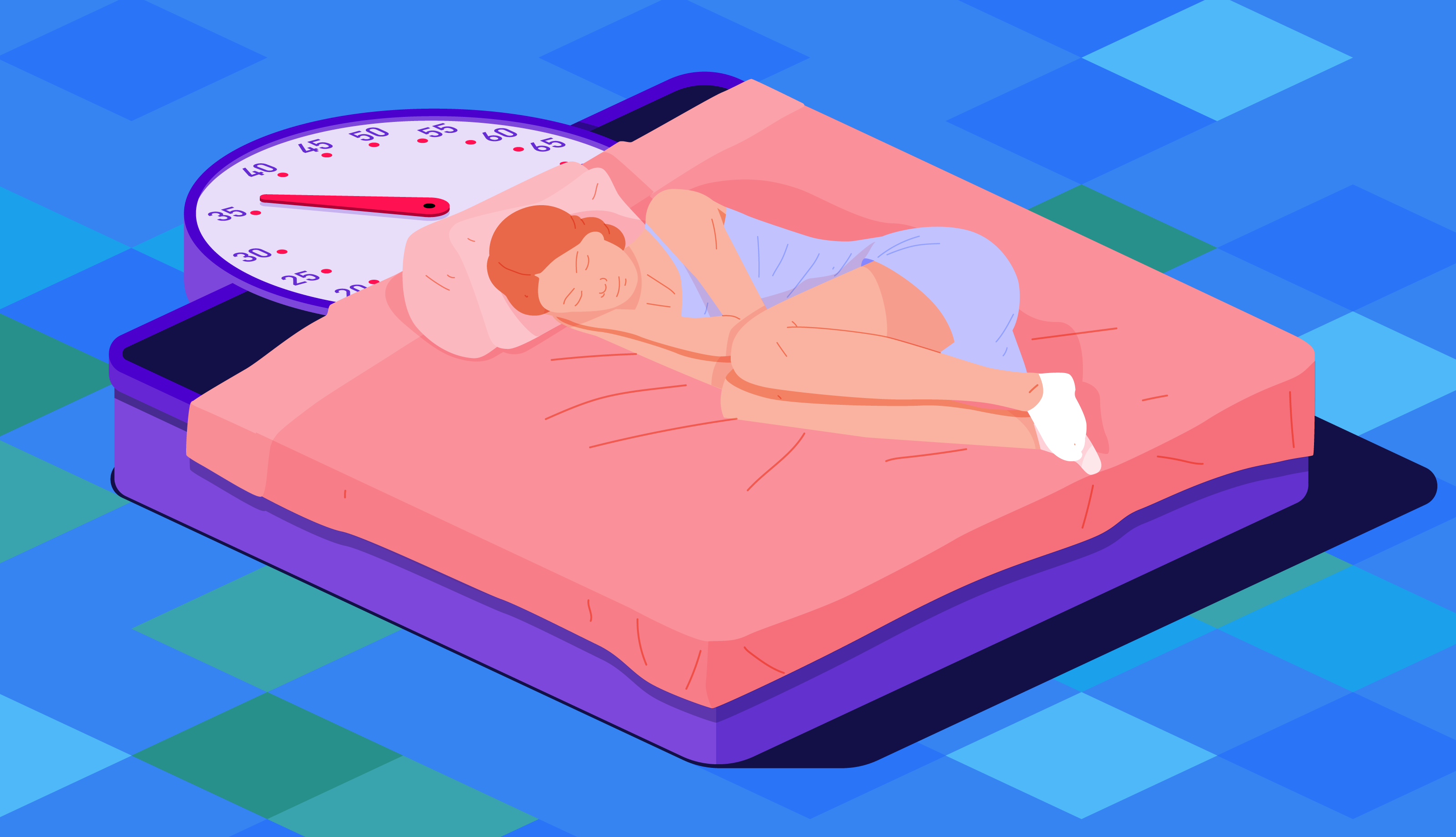Over half of adults get less sleep than they need, but that doesn’t mean you need sleeping pills. Biohacking your sleep is a much more effective and permanent solution.
According to some research, one in three adults don’t get enough sleep. Is it any real surprise since life is more hectic and we spend more time chatting to friends on screens than we do face to face?
Table of contents
- 1. Biohack sleep with tech and apps
- 2. Find the right temperature for you
- 3. Reduce blue light to biohack insomnia
- 4. Improve sleep with dietary nutrients
- 5. Induce relaxation with meditation
- 6. Exercise your way to good sleep
- 7. Put yourself on a sleep schedule
- 8. Genetics can influence your sleep
- 9. Gut bacteria for restful nights
Technology is great, but it has the nasty habit of disrupting human sleep. Fortunately, there are new (and ingenious) ways to help you reach the lovely land of nod. Throw away the sleeping tablets, they’ll only make you feel groggy and they’re not a long-term solution. Instead, make way for biohacking.
What is biohacking?
Bio hacking is often described as “do-it-yourself” biology. A biohacker makes small changes to their lifestyle to promote improvements in their health and wellbeing. See, it’s not as scary as it sounds, is it? Biohacking sleep can be an effective long-term solution if you’re struggling to get some shut-eye.
You probably don’t know where to start when it comes to biohacking sleep, so we’ve prepared a simple biohacking guide with easy ways to improve your sleep quality. We promise that it doesn’t include counting sheep!
☝TIP☝Body hacking is different to biohacking. Biohackers target their body’s natural systems, while body hackers actually implant devices to change their body’s function.
1. Biohacking sleep: monitor and measure
Before you can begin biohacking sleep, you need to first establish what is wrong with it. You’ll need to monitor if the problem is getting to sleep, or if you keep waking up, or because you’re a light sleeper. And here’s where technology can help.
If you’re very serious, you can get a sleep study done at a sleep laboratory. This is the gold standard for detecting disruptive sleep patterns. Doctors use them to diagnose conditions like restless leg syndrome, sleep apnoea, and insomnia. Thankfully though, there are plenty of (cheaper) wearable technology devices on the market which can help.
If you have a smart watch, you can get apps that monitor your sleeping patterns and stages based on cues like heart rate. They can also record noises to alert you to an undetected snoring problem, or external sounds that could be keeping you up (like the early-morning rubbish truck). It’s faster to implement than a sleep study, but obviously not as accurate.
2. Find the right temperature for you
Your body gets colder when it sleeps and it warms up when it’s time to wake up. So if your bedroom temperature is off, then this can disturb your sleep and wake you up in the middle of the night.
It’s thought that keeping your room at 18C is best for optimal sleep. That’s because your body temperature reduces during sleep and a cool room can help you drift off and maintain sleep. Remember that it’s not only your bedroom temperature, but your bedclothes and pyjamas that modulate body heat too.
There’s plenty you can do to help keep your room cave-like (cool, dark, and quiet) like lowering the thermostat, opening the windows, or using a fan to cool the room. There are also cooling gel pillow mats which are also designed to keep you cool and help you stay asleep.
☝TIP☝Socks may help manage your body temperature by regulating whether you get too hot or too cold according to a 2007 study.
3.Biohacking insomnia by reducing blue light

Scrolling social media or watching TV just before bed are big culprits when it comes to sleep problems, because your mobile phone, laptop, and television all emit blue light. Blue light can affect your body’s natural circadian rhythm if exposed to it late at night.
That’s because it suppresses the production of melatonin, often known as the sleep hormone, which tells your body it’s tired and needs to sleep. Although the sun emits blue light, you can’t really blame our favourite star, because it’s probably not shining when you go to bed.
One of the easiest ways to prevent blue light harming your sleep is to ditch the screens 2-3 hours before going to bed and swap for a good old-fashioned book. Studies show that wearing amber-tinted lenses (or blue light glasses) which block blue light could also improve sleep quality.
☝TIP☝If you live in a Northern country where the sun shines for 16+ hours per day, invest in black-out curtains to keep your room nice and dark.
4. Supplement your sleep
Sleeping tablets aren’t a long-term solution, but there are foods and biohacking supplements that you can add to your diet that could help you get some z’s. Things like melatonin and valerian root are available in most health food stores and supermarkets. Reddit Ashwagandha discussions suggest that this medicinal herb could help with sleep by lowering cortisol levels.
Of course, foods that naturally contain melatonin (the hormone that tells you you’re sleepy) can naturally aid sleep by boosting your level of this hormone, like bananas and warm milk. But you should avoid complex carbs like white bread, pasta, and sugary treats as the refined sugar could give you a burst of energy instead.
Foods that can help promote sleep
| almonds | bananas | chickpeas |
| fish | milk | oatcakes |
| spinach | wholegrain cereals | yeast extract |
Avoid beverages containing caffeine or heartburn inducing foods (the heartburn could keep you up). Instead, try relaxing with a cup of warm milk or camomile tea before bed can help you drift off. While melatonin rich fruit or nuts can help your sleep quality, eating two kiwis before bed can extend your sleep duration over a period of 4 weeks.
☝TIP☝People who consumed more vitamin C in general sleep longer according to one study, but it doesn’t mention that taking vitamin c before bed will work.
5. Induce relaxation with meditation
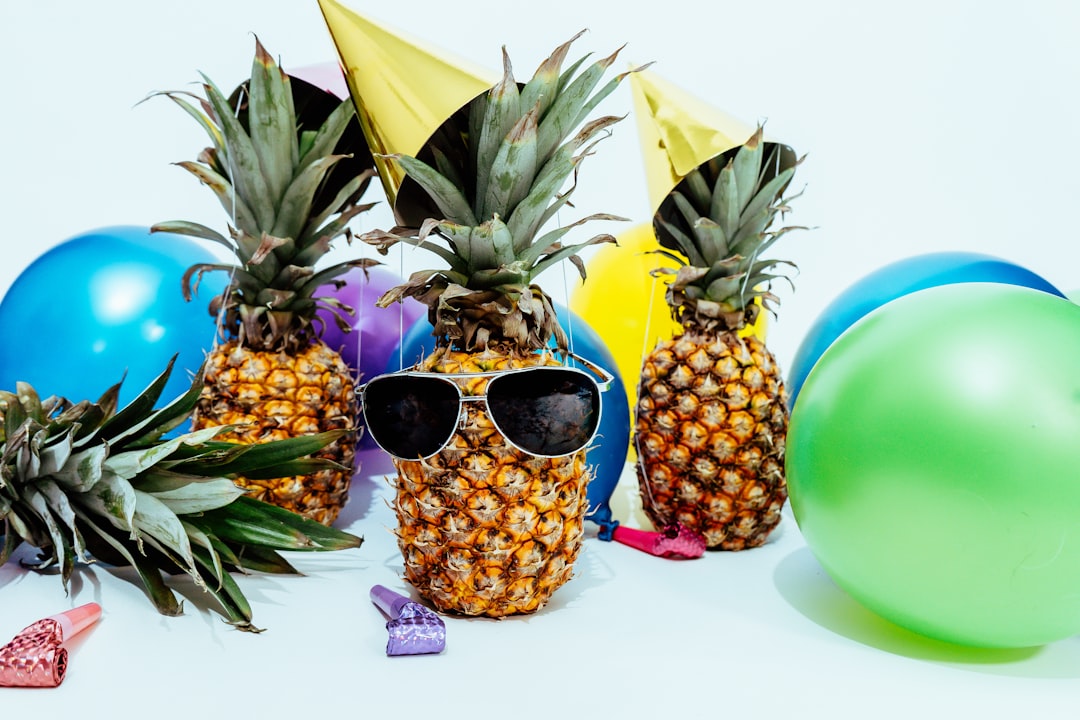
Meditation is a form of mental biohacking that promotes relaxation, awareness, and focus. And no, it doesn’t have to include humming or chanting. It’s basically a breathing skill that helps you clear your mind, oxygenate your body, and even slow your heart rate.
Some studies show mindfulness meditation is a useful short-term solution for sleep disturbances. Others have found that people who practise mindfulness have a lower incidence of insomnia, depression, and fatigue. That’s because meditation can relax your nervous systems, which lowers heart rate and blood pressure.
There are plenty of resources available to help you practice mindfulness and meditation, including apps and websites. Ideally, you should practice it for around 20 minutes a day and focus on your breathing.
6. Exercise
Evidence suggests that exercise can help you to drift off and improve your sleep quality. Plus, there are heap loads of other benefits too, like making your gut bacteria happy, improving mood, and maintaining a healthy body.
Avoid strenuous exercise within two hours of when you’re planning to go to bed. Training at this time can stop you from falling asleep. After exercising during the day, try taking a warm bath before bed to help cool your body down and get you ready for bed.
7. Timing is key

The circadian rhythm, also known as your internal body clock, is responsible for making you feel alert and sleepy throughout the day. Ideally, you should feel most alert early in the morning and sleepy as it becomes darker and later in the day.
Hack your circadian rhythm for sleep
- Go to bed and get up at the same time every day.
- When you wake up, take a morning walk and get some direct sunlight.
8. What do your genes say?
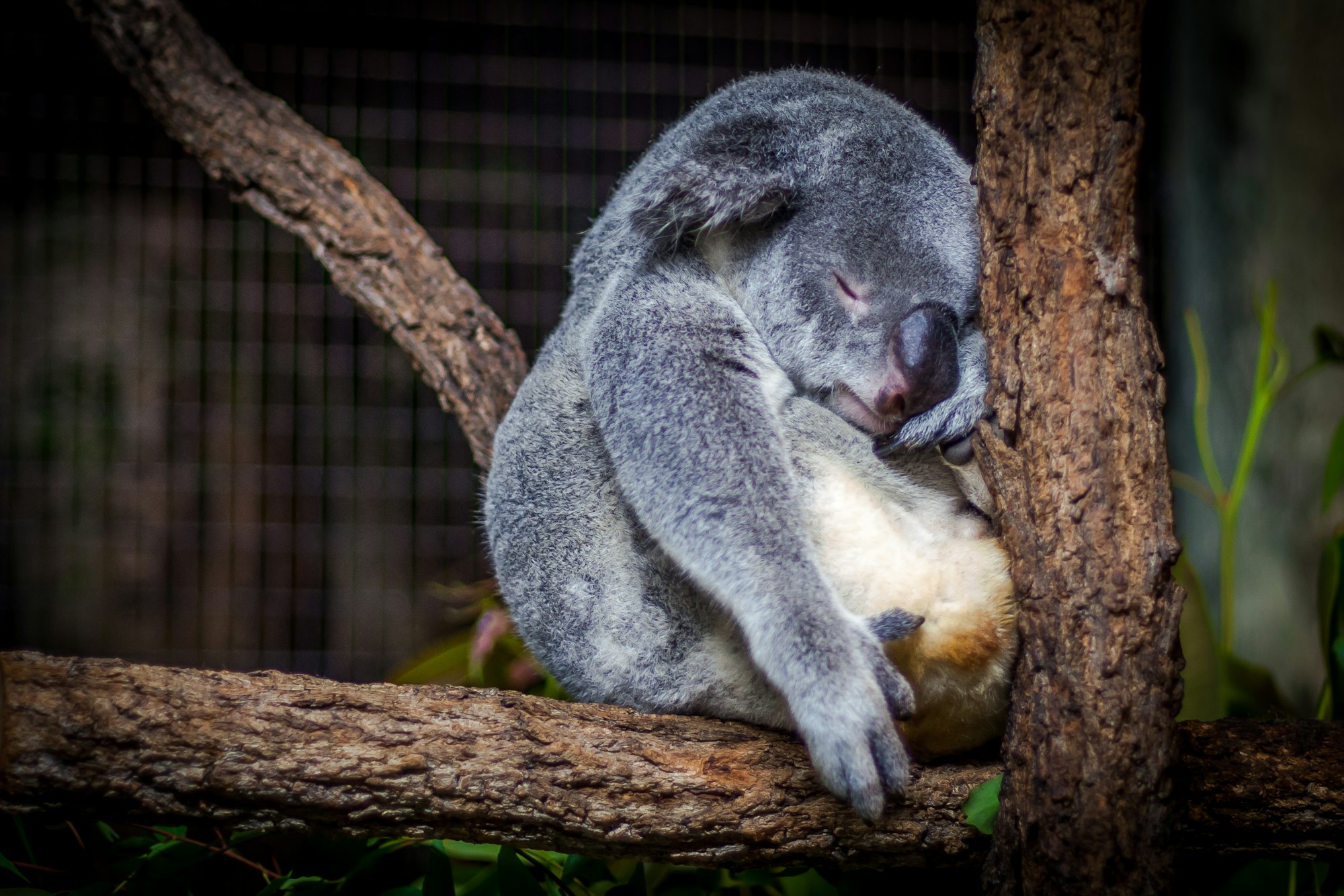
Your genes could influence your sleeping patterns. That’s right, researchers have found that insomnia could be an inherited trait. These traits have been shown in twin studies, and a 2018 study showed that insomnia is partially heritable. Researchers also found genetic links between insomnia and type II diabetes.
Home DNA tests, like the Atlas Biomed DNA Test, are an alternative method to help you biohack many areas of your lifestyle, including sleep. Our test analyses your genetic predisposition to insomnia, so you can find out if this trait may have been handed down to you by your parents.
9. How to increase deep sleep with your gut microbiome
There’s growing evidence that your gut microbes could influence sleep quality. If you didn’t know already, your gut is home to trillions of tiny microbes that help keep the body healthy. It’s a two-way street though, you have to take care of them for the bacteria to take care of you.
Therefore, manipulating the gut microbiome could help to improve sleep. It sounds drastic, but it’s not. Diversifying your gut can be as simple as eating a healthier diet rich in fibre and fermented foods that your gut bacteria love, reducing snacking, and avoiding food two hours before bed!
☝TIP☝Find out your gut microbiome diversity and other important gut health features with the Atlas Biomed Microbiome Test.
Conclusion
Once upon a time, if you wanted to manage or improve your sleep, you may have relied upon your imagination’s ability to generate endless identical sheep for you to count (or sleeping pills). Fortunately, there are much better ways to biohack sleep nowadays.
If this biohacker guide proves anything, it’s that there are many means to reach the land of nod where you can slumber for the recommended 6-8 hours in peace. There isn’t a one-size-fits-all approach, which is something biohacking recognises.
So, whether it’s increasing the fibre in your diet to enrich your gut microbiome, changing the time of day you usually exercise, or cutting down your screen time, there are plenty of changes you could implement to make your nights something to look forward to!
- Black, D, S et al. Mindfulness Meditation and Improvement in Sleep Quality and Daytime Impairment Among Older Adults with Sleep Disturbances: A Randomized Clinical Trial, 2015
- Burkhart, K and Phelps, J, R. Amber Lenses to Block Blue Light and Improve Sleep: A Randomized Trial, 2009
- Depner, C, M et al. Wearable Technologies for Developing Sleep Circadian Biomarkers: A Summary of Workshop Discussions, 2019
- Grandner, M, A et al. Dietary Nutrients Associated with Short and Long Sleep Duration. Data from a Nationally Representative Sample, 2014
- Kline, C, E. The Bidirectional Relationship Between Exercise and Sleep: Implications for Exercise Adherence and Sleep Improvement, 2014
- Lack, L, C et al. The Relationship Between Insomnia and Body Temperatures, 2008
- Li. Y et al. The Role of Microbiome in Insomnia, Circadian Disturbance and Depression, 2018
- Lin, H et al. Effect of Kiwifruit Consumption on Sleep Quality in Adults with Sleep Problems, 2011
- Smith, R, P et al. Gut Microbiome Diversity is Associated with Sleep Physiology in Humans, 2019
- Stein, M, B et al. Genome-Wide Analysis of Insomnia Disorder, 2018
- The Sleep Council. Foods That Help You Sleep
- West, K, E et al. Blue Light from Light-Emitting Diodes Elicits a Dose-Dependent Suppression of Melatonin in Humans, 2009
- Yamanaka, Y et al. Physical Exercise Accelerates Reentrainment of Human Sleep-Wake Cycle but Not of Plasma Melatonin Rhythm to 8-h phase-Advanced Sleep Schedule, 2010

